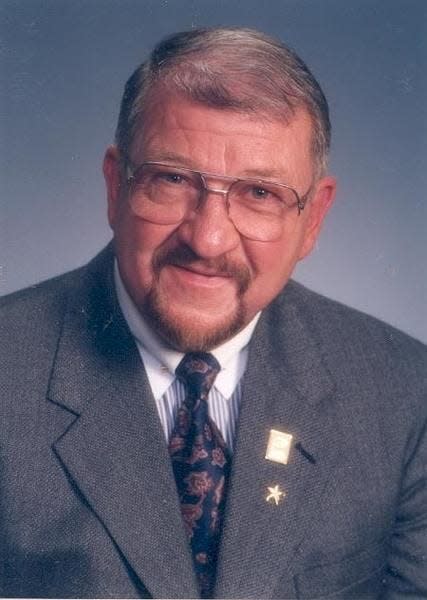Golarz: Unions offer workers dignity. To give benefits without recognition is charity

Dad had been laid off and things were getting tough. So I left school and within several weeks found a non-union steel plant job in a rough part of town near South Chicago. It was a “yes boss-no boss” kind of plant, or you got fired. I learned to eat on the run, for lunch breaks were often eliminated if the bosses thought we were falling behind. Once, after shoveling steel in 120 degree heat for over two hours, I was not permitted a bathroom break, thus shamefully urinated on myself. Inside of me was a rage I still cannot describe. But quitting was not an option. We needed the money. We were all vulnerable, we had no union.
During student teaching, I had the good fortune of having Henry Callentine and Jerry Cackley as my supervising teachers. They taught me that unions didn’t only work to raise wages. Their primary purpose and function was to provide dignity and respect for their members. For those who might not understand this, it’s like a newly married woman who says to her husband, “You don’t seem to understand, do you? I don’t want you to buy me whatever I want. I want my own checking account with my own money, and I will buy what I want, when I want, and if I want."
More in opinion:Climate legislations passes, but it’s still critical to elect climate candidates
I took a job as superintendent against the advice of colleagues. They advised the teacher’s union leadership in that district was vicious and brutal. I didn’t listen. I found soon they were right. What they did not know was the reason for this vicious hostility. The superintendent before me could have ridden with Attila the Hun, and his parting shot was to publicly humiliate union leadership for their lack of aggressiveness in bargaining.
It took three years to reestablish any kind of trust. Finally, Stu Thomas, the veteran grey-haired union leader, sent word to me. “Let’s find a trusted facilitator and do cooperative bargaining.” We agreed upon Bob Cambridge, a highly regarded Bloomington attorney. The next months were the most rewarding of my career. With a very astute school board we bargained to create a teachers agreement that had as its focus teacher dignity. When Stu passed away his mother at his funeral handed me his obituary. “He wanted you to have this. He was so proud.” It stated that he was the union leader who headed up the cooperative bargaining sessions, not the strikes of earlier years.
Join the conversation:How to submit a letter to the editor or guest column to The Herald-Times
I received my degrees from Saint Joseph’s College and Indiana University. I studied all of the great moments in management-labor relations and their theories. From the Chicago Hawthorn studies conducted by Yale University, to the Theory X, Theory Y conclusions of McGregor, through the writings of Collins and Porris Built to Last out of Stanford, to the research designs put forth by Kettering and Lilly with effective schools, to the writings of Peter Senge in the Dance of Change, the works of Peter Drucker and so many more.
The commonality of all of this research and practice is the emphasis on the need to dignify and provide respect to workers if you want a viable organization.
To give benefits to workers without respecting their union-ship is nothing more than charity; to honorable workers such charitable gestures are never trusted. They were not given in justice.
There is really only one viable path when interrelating with your workers. Formally recognize them and then sit across the table from them as equals. They will, with you, shape a better world.
This article originally appeared on The Herald-Times: Columnist argues unions provide workers with dignity, respect
